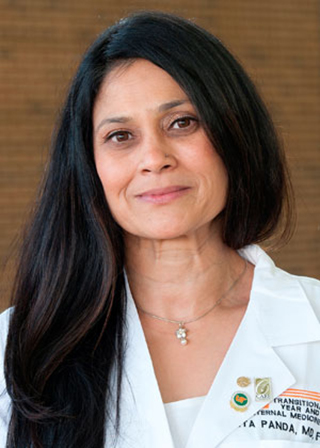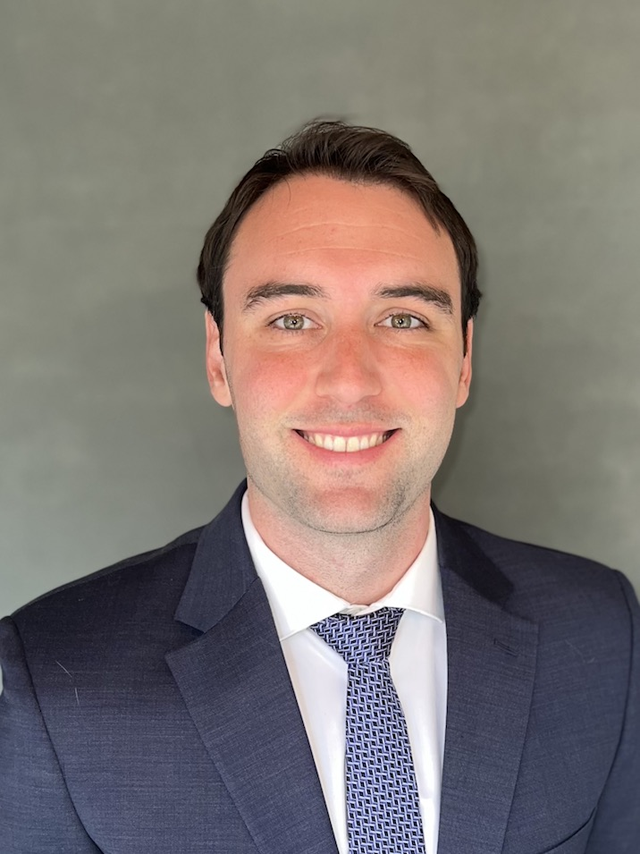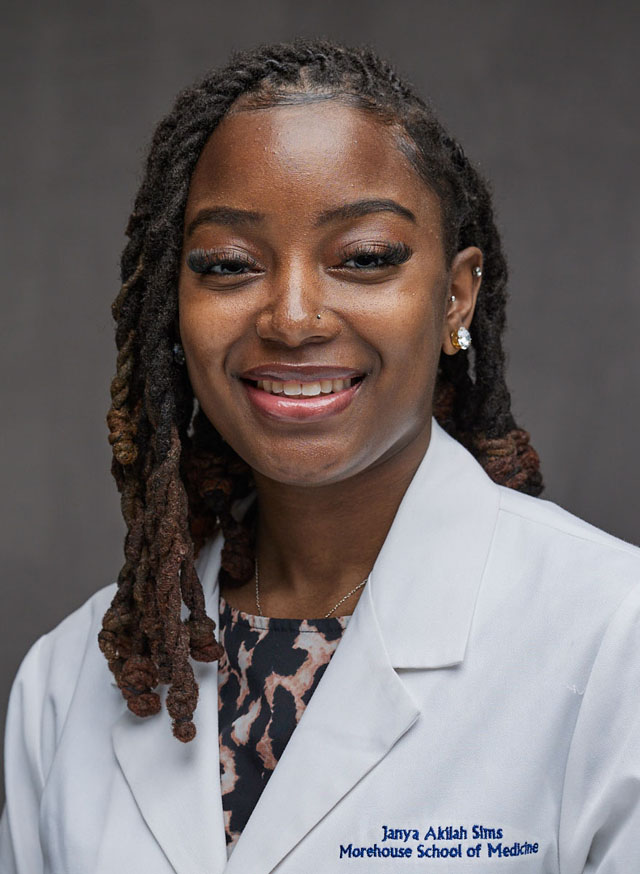A historic partnership between Morehouse School of Medicine and CommonSpirit Health, More in Common Alliance is aimed at addressing the underlying causes of health inequities, including the lack of representation among care providers.
MiCA’s Summer of STEM
Academies Fostering Future Innovators Across CommonSpirit Communities
Over a dynamic three-week period from July 14 to August 1, 2025, the More in Common Alliance, a groundbreaking partnership between Morehouse School of Medicine (MSM) and CommonSpirit Health, successfully hosted three impactful STEM Academies in distinct geographical locations:
- Chattanooga, Tennessee (CHI Memorial)
- Bakersfield, California (Dignity Health – Memorial Hospital)
- Frankfort, Kentucky (Saint Joseph Health, Lexington)
This ambitious initiative served as a crucial extension of MSM’s well-established pathway programs, strategically designed to cultivate and nurture the next generation of leaders and innovators in science, technology, engineering, and mathematics.
Each academy, meticulously planned and executed, provided an immersive and enriching experience for participating students. The first academy kicked off in Chattanooga, TN, from July 14 to 18. Following this, the program moved westward to Bakersfield, CA, from July 22 to 24. The final academy concluded in Frankfort, KY, from July 28 to August 1, ensuring broad regional reach and impact.
The core objective of these academies was to ignite and deepen student interest in STEM fields while equipping them with foundational knowledge and practical skills essential for future success. The comprehensive curriculum at each location was a blend of engaging hands-on activities, illuminating lectures delivered by experts, and invaluable mentorship and volunteering opportunities. Students were actively involved in experiments, problem-solving challenges, and collaborative projects, allowing them to apply theoretical concepts in real-world scenarios.
Beyond the academic rigor, a significant emphasis was placed on mentorship. Students had the unique opportunity to interact with and learn from accomplished professionals, researchers, and educators from various STEM disciplines. These interactions provided crucial insights into potential career paths, offered guidance on academic pursuits, and served as a powerful source of inspiration. The academies aimed to create a supportive and encouraging environment where students felt empowered to explore, question, and develop their scientific curiosity.
By extending its renowned pathway programs through these regional STEM Academies, Morehouse School of Medicine and CommonSpirit through the MiCA partnership demonstrated their unwavering commitment to expanding access to quality STEM education and fostering pathways for a variety of talented students. This initiative not only broadened MSM’s reach but also reinforced its dedication to addressing challenges in STEM representation and empowering communities through education. The success of these academies lays a strong foundation for continued engagement and the sustained development of future STEM leaders across the nation.
Learn more about the camps in this video recap of the Kentucky Academy.
Stakeholder Spotlight: Mukta Panda, MD, Regional Dean, Chattanooga, TN

What made you choose healthcare as a career?
Dr. Panda: My decision to pursue medicine was profoundly shaped by the journey of my parents—both physicians and dedicated educators. They served with humility and purpose in government safety-net hospitals and rural communities across India and abroad, caring for anyone in need. I remember watching them tend to patients, even late into the night, often welcoming them into our home after long days of work. Our house was always alive with the presence of their students, filled with joy, learning, and a strong sense of community. From them, I learned that medicine is not just a profession—it is a calling rooted in service, dignity, and love. Their unwavering commitment to healing, their resilience in the face of adversity, and their deep respect for every human life taught me that healthcare is a sacred trust. It’s not only about treating illness—it’s about honoring the humanity of those we serve. I chose this path to carry their legacy forward—with compassion, purpose, and a steadfast commitment to justice.
What are some of the highlights you have had that reinforced your decision to choose healthcare as a career?
Dr. Panda: Throughout my journey in medicine, I have been sustained by deep, transformative connections—with patients, students, healthcare teams, and colleagues. Each interaction has reaffirmed why I chose this path. Holding space for someone in their most vulnerable hour, witnessing healing in its many forms, and being invited into another’s story has reminded me that medicine is not just a profession—it is a sacred privilege.
I continue to find profound joy in walking alongside others—not only to diagnose or treat, but to honor their journeys with presence and compassion. Whether mentoring a student discovering their calling or collaborating with interprofessional teams committed to holistic care, these shared experiences have shown me that we are all part of a larger tapestry—woven with empathy, wisdom, and purpose.
What motivates you to continue to work in healthcare—despite the challenges?
Dr. Panda: What keeps me grounded and inspired, even amidst the many challenges, is the unwavering belief that committed people—when working together for the greater good—can create meaningful change. It’s this belief that drew me to the Morehouse School of Medicine (MSM) family and the mission of the More in Common Alliance (MiCA). Their shared purpose resonates deeply with my own values and roots. I was raised with the principle of Vasudhaiva Kutumbakam—the belief that the whole world is one family. This foundational value, woven into the fabric of my culture, invites us to intentionally see every person as a kindred spirit—a spiritual being inhabiting a human body. This lens of shared humanity aligns seamlessly with MSM’s mission to advance health equity and cultivate a future built on compassion, connection, and justice.
I am motivated by the opportunity to work alongside others who are equally dedicated to transforming healthcare into a force for equity, not just care for the sick. Together, across our varied roles, institutions, and lived experiences, we are united by a common goal: to serve, to uplift, and to plant seeds of hope for a healthier and more just future. Investing in learners who reflect the communities they will serve—many of whom bring lived experiences that foster understanding and strengthen trust between patients and physicians—reinforces this mission. This work not only addresses workforce shortages but also strengthens the human connection at the heart of healthcare. My grandfather taught me that we are all going to leave behind a legacy. Who we are and how we show up in the world matters. For me, continuing in this work is about showing up with purpose—to help shape a better future for our learners, our communities, and for generations to come, including my own children and grandchildren.
What is one thing that you want people to know about MSM's presence in Chattanooga?
Dr. Panda: MSM is in Chattanooga because MSM cares deeply and believes in the power of authentic partnership. The MSM presence here reflects our commitment to walk alongside the CHI Memorial CommonSpirit Health team and the Chattanooga community with humility, respect, and a shared purpose. As I see it, MSM is not just in the community, but with the community—honoring Chattanooga’s rich history and working collaboratively to shape a healthier, more equitable future. We believe that meaningful, lasting change happens when we truly listen, engage, and co-create solutions that reflect the hopes, needs, the experience and wisdom of the people in Chattanooga. Together with CHI Memorial and our many community leaders, partners, and members the aim is to support and uplift the health and well-being of Chattanooga, invest in the next generation of healthcare professionals, address health disparities, provide equitable opportunities and build bridges of trust that extend across neighborhoods and generations. The presence is not transactional—rather it is transformational, a testament to the belief and vision of MSM and MiCA that this partnership holds the potential to create a model for community-centered, mission-driven healthcare that honors every life.
What are your short-and-long term goals for the RMC in Chattanooga?
Dr. Panda: Short-term, our goal is to provide an excellent, mission driven and competency based educational experience for medical and allied health students by collaborating closely with experienced clinicians, physicians, and healthcare professionals at CHIMCSH and those in Chattanooga. We aim to have a consistent and engaged cohort of students rotating through this RMC, where they receive individualized, holistic, hands-on training grounded in excellence, empathy, compassion, equity, and respect.
In parallel, we are working closely with local schools, neighboring communities, and regional colleges and universities to establish tangible, sustainable, and achievable pathways and pipeline programs. These initiatives aim to identify, support, and mentor students who are interested in healthcare careers—particularly those from historically underrepresented, rural, and economically disadvantaged backgrounds. By providing access to affordable, high-quality education and long-term mentorship, we seek to create meaningful entry points into healthcare professions and build a more diverse and representative workforce.
We want our students to not only achieve their dream residency and career goals but to feel energized and inspired to return and serve this community. Through mentorship, meaningful clinical experiences, and community engagement, we strive to develop not just outstanding clinicians—but future healthcare leaders, educators, and advocates who reflect and uplift the communities they serve.
Long-term, our vision is to establish a robust graduate medical education program in Chattanooga. By building postgraduate training opportunities that are mission-aligned and community-centered, we hope to grow a sustainable healthcare workforce rooted in the region.
What do you consider to be a success for MSM activities in Chattanooga?
Dr. Panda: Ultimately, we aim to see tangible improvements in the healthcare outcomes of the Chattanooga community. Success will be reflected not only in the career paths of our graduates but in measurable advancements in community health metrics, trust in the healthcare system, and access to high-quality, compassionate care for all, i.e., the creation of a more equitable and healthier Chattanooga for generations to come.
Stakeholder Spotlight: Daniel Bishop, MD, Santa Cruz Family Medicine Resident, 2024

Has the residency been what you expected it to be?
Dr. Bishop: Residency has been both incredibly challenging and deeply rewarding. I chose Family Medicine because I’m passionate about providing comprehensive, whole-person care. I enjoy building long-term relationships with my patients and developing thoughtful treatment plans that reflect their individual needs and circumstances. While I anticipated that residency would be intense, I’ve also found it to be a time of tremendous growth personally, professionally, and emotionally.
After a year of residency, what are some things that you have experienced that you didn't expect? What has been your biggest challenge?
Dr. Bishop: One thing I didn’t fully expect was how quickly I would be trusted with significant responsibilities. Being the first point of contact for patients and their families has been both humbling and empowering. My biggest challenge has been managing the emotional weight of patient care, especially when facing serious or life-altering diagnoses. Balancing the demands of residency with the desire to be fully present for each patient has been a continuous learning process.
What are some of your goals for year two of residency?
Dr. Bishop: One of my top goals for my second year is to improve my Spanish. This has been a consistent focus for me throughout residency, as I care for a large number of Spanish-speaking patients. My aim is to become proficient enough to communicate confidently and compassionately without needing an interpreter. I believe that language is a powerful tool in building trust, and I want to ensure that my patients feel heard and understood in every encounter.
Without violating HIPAA, do you have a success story that you'd like to share?
Dr. Bishop: One success story that stands out involves diagnosing cancer in a young male patient close to my age. The experience was particularly moving because of the personal parallels we shared. Coordinating his care and facilitating rapid access to treatment made me reflect on how far I’ve come in just one year of residency. It reminded me of the real impact we can have as physicians—not only through clinical decision-making but also through advocacy and compassionate support.
What do you enjoy doing in Santa Cruz during your off time?
Dr. Bishop: Santa Cruz holds a special place in my heart. My wife and I actually met here in high school. Being back home has been a joy. We’ve been rediscovering the hobbies we’ve always loved, like surfing the beautiful Santa Cruz beaches and mountain biking through the redwood trails. It’s an incredible feeling to live and work in the place that means the most to me. I couldn’t be happier to call Santa Cruz home again.
Stakeholder Spotlight: Janya Akilah Sims, MD Candidate, MSM 2025

What made you choose to go to Morehouse School of Medicine for medical school?
Sims: I chose Morehouse School of Medicine (MSM) because of its mission to lead in the advancement of health equity and serve underserved communities. As someone who was diagnosed with lupus and rheumatoid arthritis at a young age, I’ve experienced firsthand the barriers that exist in accessing quality healthcare—especially in rural areas. MSM’s focus on training physicians who are both compassionate and community-driven deeply resonated with my personal experiences and career goals.
Why did you choose to participate in the clerkship opportunity in the Pacific Northwest?
Sims: I was drawn to the Pacific Northwest clerkship opportunity because I wanted to broaden my clinical experiences by stepping outside of the Southeast and learning in a new healthcare environment. I saw this as a chance to develop adaptability, understand different patient populations, and explore how health systems operate in a region that also values innovation and whole-person care.
How has the experience been for you at Virginia Mason Franciscan Health?
Sims: My experience at Virginia Mason Franciscan Health has been enriching, both professionally and personally. The faculty and staff have been incredibly welcoming and invested in my learning. I appreciated the strong emphasis on interdisciplinary collaboration, patient-centered care, and evidence-based practice. It has been a privilege to learn from such dedicated providers and to care for patients in a setting that emphasizes compassion and excellence.
What are some key learnings that you will take with you throughout your career as a healthcare professional?
Sims: This experience reaffirmed the importance of listening—to both patients and colleagues. I’ve learned how much healing can come from being fully present and how vital communication is to effective care. I’ve also seen the value of culturally responsive care and the need to address social determinants of health in all clinical settings. These lessons will stay with me as I continue my journey to become a pediatric rheumatologist serving underserved communities.
What makes MSM different from other medical schools you considered attending?
Sims: MSM doesn’t just teach medicine—it also teaches mission. The environment is one where your “why” is constantly nurtured, and your personal journey is valued. The faculty take a genuine interest in your development, and there’s a palpable sense of purpose in every lecture, every patient interaction, and every community engagement. MSM gave me more than a medical education—it gave me a sense of calling.
Would you encourage other MSM students to participate in the clerkship opportunities in the PNW and other markets?
Sims: Absolutely. Stepping into a new region and health system challenged me to grow in ways I didn’t expect. It helped me become more culturally aware, more confident, and more committed to my goals. I would highly encourage other MSM students to take advantage of opportunities like the PNW clerkship. It’s a chance to represent MSM, gain a broader clinical perspective, and bring those insights back to the communities we are called to serve.
Join us
If you believe in the advancement of health equity in underserved communities, we need your support. Find out more.